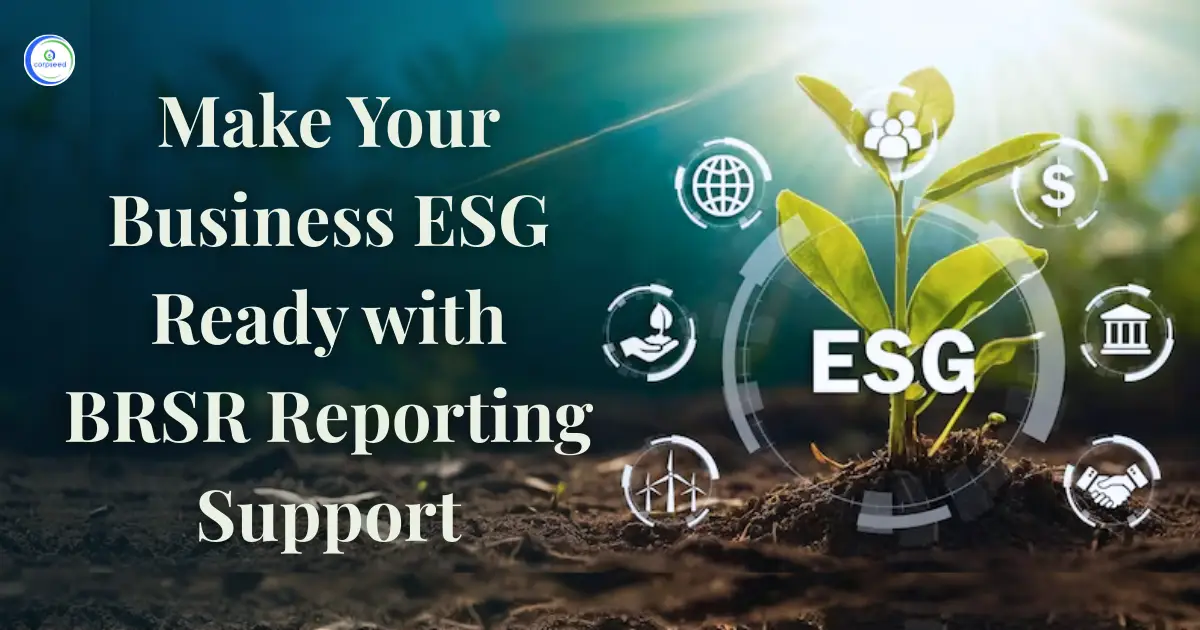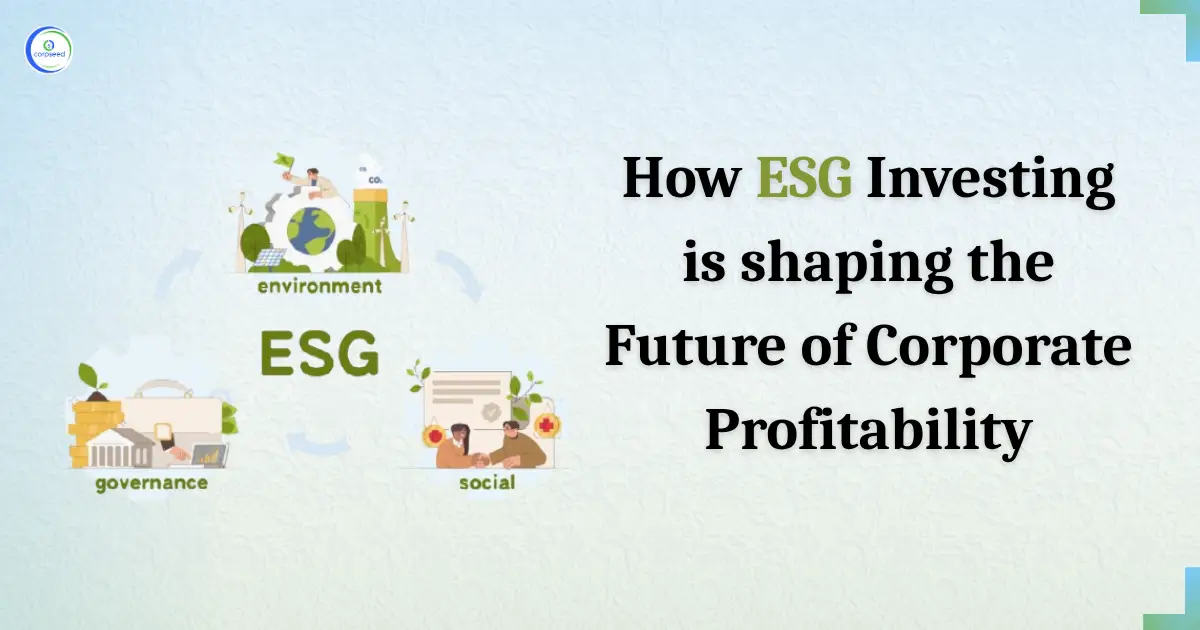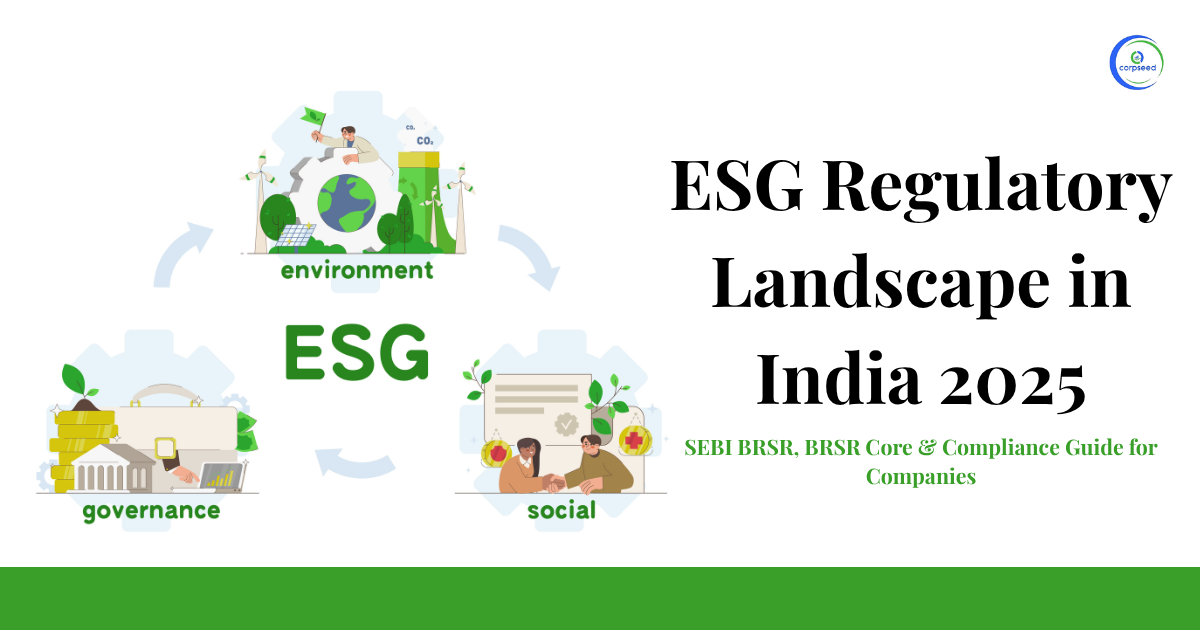Introduction: ESG Reporting and Sustainability Report
An Environmental, Social, and Governance (ESG) report, also known as a sustainability report, is a document that is released by a corporation or organization. It helps the business to be more open about the dangers and chances it may hold. Organizations have progressed in their use of sustainability and ESG strategies from adopting compostable materials to integrating sustainability into their operations, strategy, product development, and business practices. Businesses have recently started seeing the importance of Environmental, Social, and Governance as a tool to attract potential partnerships and business. Following ESG Compliances adds to the stature of the company as a whole and naturally makes them stand out from any threats or competition. ESG Reports authentic data related to disclosing ESG activities that turn benefit the company since it portrays a good image.
Table of Contents
- Introduction: ESG Reporting and Sustainability Report
- Importance of ESG Reporting/Sustainability
- What Does an ESG Report Contain?
- How to Report ESG?
- Who is Required to Submit an ESG Report?
- Who Regulates ESG in India?
- Is Reporting ESG Mandatory in India?
- The Business Responsibility and Sustainability Reporting (BRSR) Framework
- Conclusion
--------------Blog Contact Form-------------
Importance of ESG Reporting/Sustainability
ESG Reporting is a powerful tool for proving the success and the validity of a company’s ESG projects. Investors can filter investments and match investments to their values, and avoid corporations that run the danger of causing environmental harm, social blunders, or corruption by using ESG reports, which highlight the qualitative and quantitative advantages of a company's ESG actions. Reporting also enables to gain of client loyalty, cutting operating expenses, and improving both asset management and financial performance.
What Does an ESG Report Contain?
ESG reports contain both qualitative and quantitative data about three main subjects-
Environment
The responsibilities of a company are to make sure they’re functioning without causing damage to the environment. The report focuses on the following factors-
- Management of the company during climate changes
- Steps to reduce the emission of carbon
- Judicious actions to prevent air or water pollution and maintain biodiversity
- Approach to reducing emissions
- Focus on Greenhouse Gas emissions
- Waste management strategies
Social
Responsibility of the company in maintaining human standards includes the following aspects-
- Involvement of the community
- Maintenance of Labour laws and human rights
- Engagement of employees at the company
- Initiatives to promote gender, BIPOC, and LGBTQ+
Governance
Company’s responsibility to avoid corruption and make sure the investments are long-term sustainable include-
- The internal controls of a company
- Leadership, board composition, executive compensation, audit committee structure, shareholder rights, bribery, lobbying, political contributions, and whistle-blower programs policies, principles, and procedures
- The layout of anti-corruption and anti-bribery policies
How to Report ESG?
There is no standard procedure to report ESG however there are a few common responsibilities that companies follow all over while submitting their report. A few essential ones are as follows-
- Expanding the use of renewable energy
- Increasing the amount spent on Corporate Social Responsibility
- Establishing a medical and educational facility
- Minimization of carbon footprints
- ESG should be a major consideration when determining top management pay
Who is Required to Submit an ESG Report?
ESG disclosures are very important to all parties concerned with a business process:
Investors: If a company ignores sustainability, there is a danger that either its business processes will become obsolete as a result of future legal and regulatory changes that may restrict specific business practices or that the demand for its products or services will decline. ESG disclosures are therefore extremely important for investors for the following reasons:
- Taking climate change into account when allocating capital and valuing assets
- Figuring out how a company's operations affect the environment
- The society estimates the potential impact of climate change on a company's long-term financial viability.
Businesses: ESG disclosures enable businesses to recognize potential transitional risks, assess their sustainability prospects, and take the required actions to prepare for upcoming changes. If businesses are unaware of this practice, they run the risk of losing both their ability to make a profit and their market reputation. ESG disclosures also assist businesses in seeing potential areas for innovation that could lead to significant gains in the future. Additionally, they assist businesses in assuring their stakeholders of their principles and regard for ethical business practices.
Consumers: Consumers can identify ethical companies through ESG disclosures. These companies prioritize responsible growth over increasing profits. Additionally, companies could utilize their disclosures as a component of their marketing plan to draw in additional customers.
Read Our Blog: What is Environmental Social, and Governance?
Who Regulates ESG in India?
India consists of several authorities that encourage ESG reporting and keep a watch on how it is managed. The Ministry of Corporate Affairs (MCA) supervises the report ESG reporting of the big companies and India and the Securities Exchange Board of India (SEBI) supervises those companies that are publicly listed. The SEBI further regulates asset managers. The Central and State Pollution Control Board and other enforcement agencies under labor and environmental laws, such as the Ministry of Environment, Forest, and Climate Change, contribute significantly to ESG compliance in their respective fields. Setting objectives and standards for the renewable energy industry in India is mostly the responsibility of the Ministry of New and Renewable Energy. In May 2021, the Reserve Bank of India (RBI) established a "Sustainable Finance Group" (SFG) intending to coordinate with other national and international organizations on climate change-related issues, suggesting strategies, and introducing a regulatory framework, including appropriate ESG disclosures, that could be mandated for banks and other regulated entities to promote sustainable practices and mitigate climate-related risks in the Indian economy.
Is Reporting ESG Mandatory in India?
The National Voluntary Guidelines (NVG) on Social, Environmental and Economic Responsibilities of Business were published in 2011 by the Ministry of Corporate Affairs (MCA). The NVG adhered to the UN Millennium Development Goals. The Business Responsibility Report (BRR) was introduced by the Security and Exchange Board of India (SEBI) in 2012, taking inspiration from the mechanism of the NVG. The BRR, which came before the present Business Responsibility and Sustainability Reporting (BRSR) regulations, is India's first Environment, Social, and Governance (ESG) statutory disclosure framework. For the top 100 listed firms, BRR is required based on market capitalization and as the BRR coverage expanded gradually, by 2019, it was made mandatory for the top 1000 listed businesses. The BRSR, which replaces the BRR was introduced in a circular released by SEBI on May 10, 2021. The top 1000 listed businesses by market capitalization are annually required to comply with mandated ESG policies and regulations outlined in the new reporting format. The framework is based on the National Guidelines on Responsible Business Conduct’s nine guiding principles.
One of the earliest corporate disclosure requirements for ESG was made by the Indian Companies Act. Along with an annual financial statement, Indian corporations must include information about energy conservation in their board of directors' reports. A director of an Indian corporation is additionally required by law to act in good faith to advance the company's objectives for the benefit of all of its members as well as in the best interests of the business, its employees, the shareholders, the community, and the preservation of the environment.
The Business Responsibility and Sustainability Reporting (BRSR) Framework
The BRSR establishes a comparatively thorough disclosure structure to enhance ESG-compliant corporate practices in India. It includes the following practices-
- A company's implementation of suitable procedures and policies to maintain its ESG compliance must be disclosed. To ensure comparison across industries, businesses, and historical periods, BRSR places a lot of focus on quantitative metrics;
- Enhanced disclosures on climate and socially relevant topics;
- BRSR enables collaboration for organizations that have already submitted their sustainability reports under various globally acknowledged standards.
The BRSR aims to ensure that corporations disclose their ESG metrics and sustainability-related risks clearly and consistently. This strategy is anticipated to assist businesses in better articulating their sustainability goals, positioning, and performance to the market, generating long-term value and enhancing investors' capacity to make knowledgeable ESG-related decisions.
Read Our Blog: What is Environmental, Social and Governance (ESG) Investing?
Conclusion
India is making steady progress toward creating standards for corporate, social, and environmental governance. India has joined the group of nations that have recently released comprehensive sustainability reporting frameworks with the implementation of the BRSR framework. The BRSR further aims to ensure that corporations disclose their ESG metrics and sustainability-related risks clearly and consistently. This strategy is anticipated to assist businesses in better presenting their sustainability goals, positioning, and performance to the market, generating long-term value and enhancing investors' capacity to make knowledgeable ESG-related decisions.
This portion of the site is for informational purposes only. The content is not legal advice. The statements and opinions are the expression of author, not corpseed, and have not been evaluated by corpseed for accuracy, completeness, or changes in the law.
BOOK A FREE CONSULTATION
Get help from an experienced legal adviser. Schedule your consultation at a time that works for you and it's absolutely FREE.









